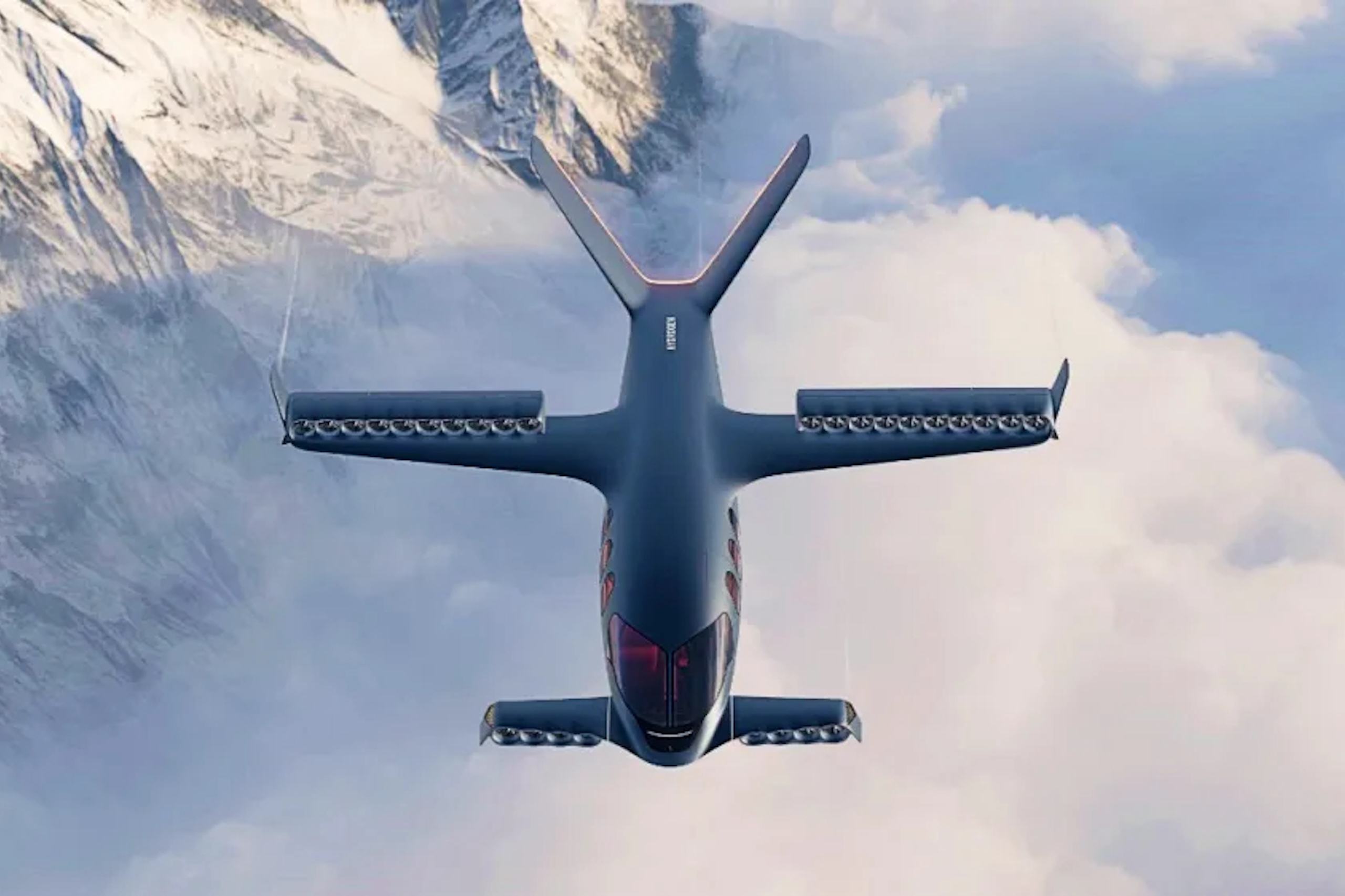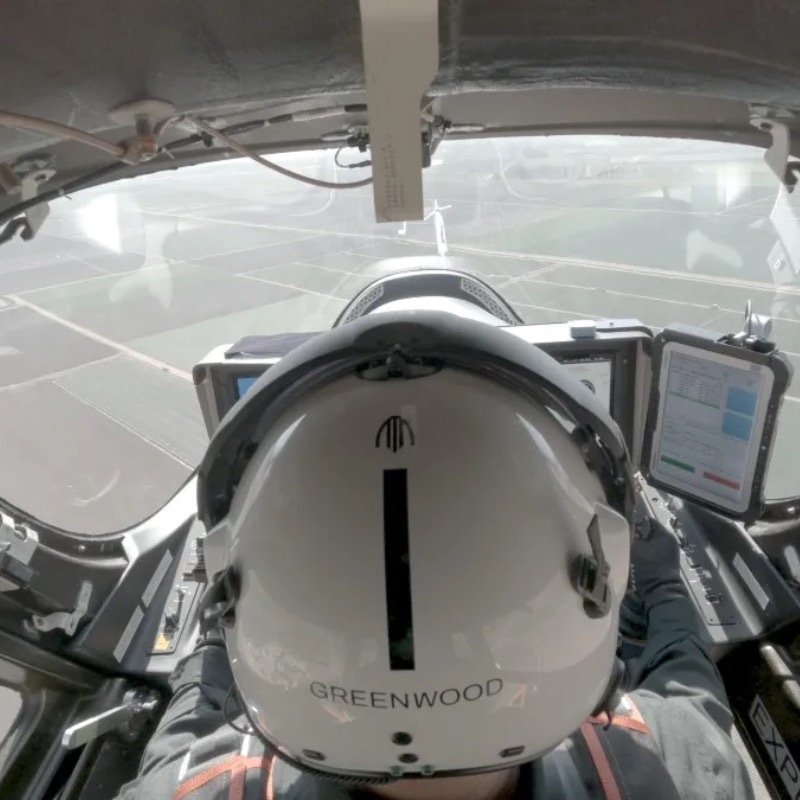Of all the emerging forms of aviation propulsion, hydrogen seems the least likely to be an early adopter. But Swiss-based Sirius has announced plans to start flight tests of a hydrogen-powered business jet in 2025.
The company recently introduced the Sirius Business Jet and Sirius Millennium Jet (the commercial version), followed by the hydrogen-electric propulsion system with ducted fans. CEO Alexey Popov gave Robb Report more insight into development plans and its timeline towards certification.
Like many eVTOL designs, the Sirius Business Jet will have both vertical takeoff potential as well as shifting rotors that allow forward flight. Like electric aircraft, the Sirius Business Jet will emit zero carbon emissions but will boast a much longer range and top speed. “We’ve just presented the most critical part of this aircraft—the engine,” says Popov. “It’s a sustainable technology that is part of aviation’s plan to be carbon neutral by 2050.”
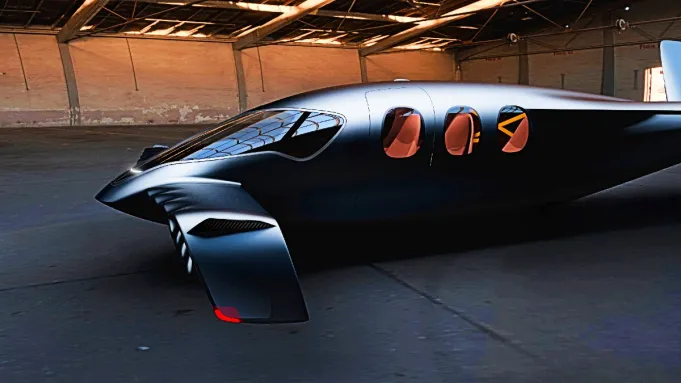
Image courtesy of Sirius Aviation AG
Hydrogen-powered aircraft are rare, but not new. In February 1957, a Martin B-57B flew on hydrogen for 20 minutes on one of its engines, rather than using jet fuel. Just over 50 years later, Boeing flight-tested a two-seat Diamond DA20 on a fuel cell. In 2016, the wide, thin-winged experimental Antares DLR-HY4 successfully completed flight tests on a hydrogen fuel cell and has been flying since. Last January, ZeroAvia flew a Dornier 228 with one turboprop replaced by a prototype hydrogen-electric powertrain that included two fuel cells and a lithium-ion battery.
If Sirius is successful, it would be a breakthrough—the first purpose-built, hydrogen-electric jet that is not an experimental aircraft or using an existing airframe. The Business Jet won’t be powered by hydrogen fuel cells but instead will use liquid hydrogen stored in cryogenic tanks that will power the electric motors, with a lithium-ion battery system as backup.
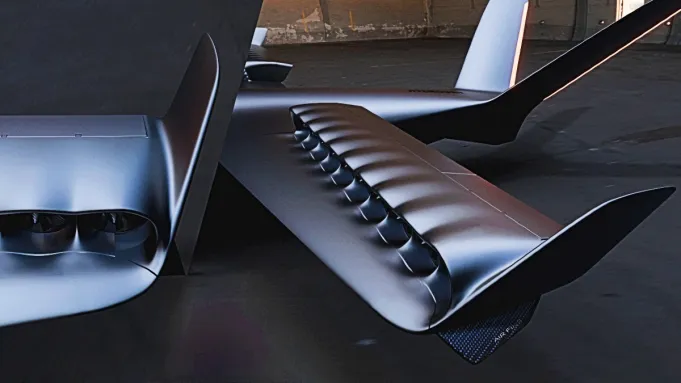
Image courtesy of Sirius Aviation AG
Popov says most components use proven “off-the-shelf technology,” with its just-unveiled powertrain being the missing link that will bring everything together.
Sirius developed the hydrogen powertrain design and the ducted fan system, while its partner BMW Designworks is responsible for the interior and exterior. Tommy Forsgren, lead designer at BMW Group and responsible for the BMW Series 6, will take the lead on the design. The design group has been responsible for many aircraft interiors, both large and small, but this will be its first exterior. Other partners include the Sauber Group F1 on the design and Leonardo Aerostructures, part of the Italian helicopter giant Agusta Westland.
The Business Jet version will have space for a pilot and up to three passengers, while the Millennial Jet version will have seats for a pilot and up to five passengers. The design includes multiple ducted jet fans along both sets of wings, at the forefront and midsections of the aircraft, with a dramatically flared tail.
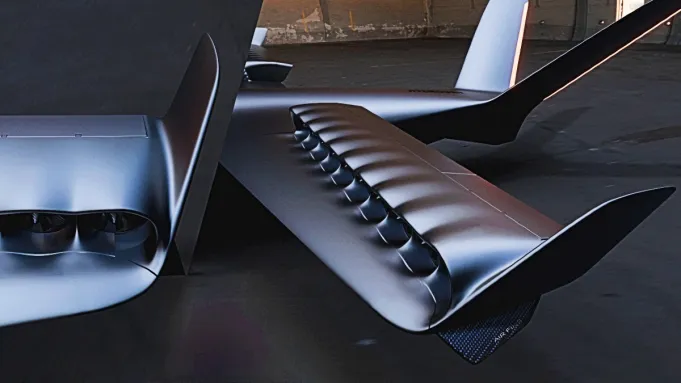
Image courtesy of Sirius Aviation AG
Hydrogen has a much higher power density than batteries, giving it a much larger range than pure-electric aircraft. The Business Jet will be able to fly 1,150 miles, thanks to extended fuel tanks. Its designated maximum cruise speed is 323 mph. Besides zero carbon emissions, Sirius says the jet will produce 60 dBA from the air, or about the same noise level as a conversation in a restaurant. The Millennium Jet’s range is about half of the Business Jet’s at 650 miles, though it will have the same cruise speed and dBA output.
Much larger aircraft manufacturers such as Airbus are working on larger hydrogen-powered aircraft, with the expectation they could be used commercially by 2035.
According to Sirius, a full-scale working prototype is now under construction, with completion expected in the second or third quarter of this year. Toward the end of 2024, it will undergo initial hovering tests and horizontal flight. In 2025, Sirius expects to manufacture several full-scale airframes and to put those through more extensive flight testing. The development of the electric motors and blades will take place at the same time.
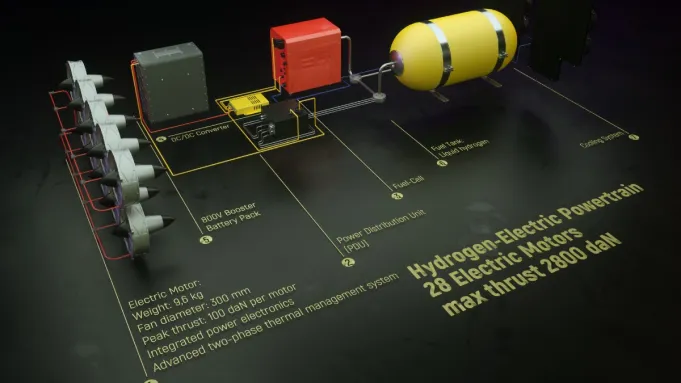
Image courtesy of Sirius Aviation AG
By the fourth quarter of 2027, Sirius hopes to have its aircraft certified by the Federal Aviation Administration, which it sees as its main market. The long-term plans are to build a facility in the US, though initial production will take place in Switzerland. “We hope to deliver the first jets to customers in the first quarter of 2028,” says Popov.
Sirius said it has received pre-orders from Mehair in India for 100 jets, with an approximate value of US$400 million (HK$3.1 billion). A press release said 50 would be built in India, and that both companies would develop “franchise models” for the country.
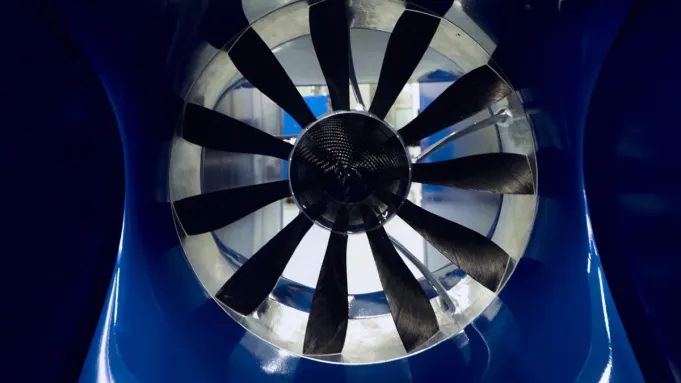
Image courtesy of Sirius Aviation AG
If this ambitious experiment eventually pays off, Sirius could leap ahead of VTOL competitors also aiming at regional travel. Some expect these new aircraft to replace helicopters, both for local and regional travel, thanks to minimal noise and no emissions.
But there is a long way to go before this concept is proven, since the announcements are the completion of phase 1. Apart from the fans and electric motors, everything still needs to be built to scale and flight-tested. Sirius said it plans to make other announcements later this month.





